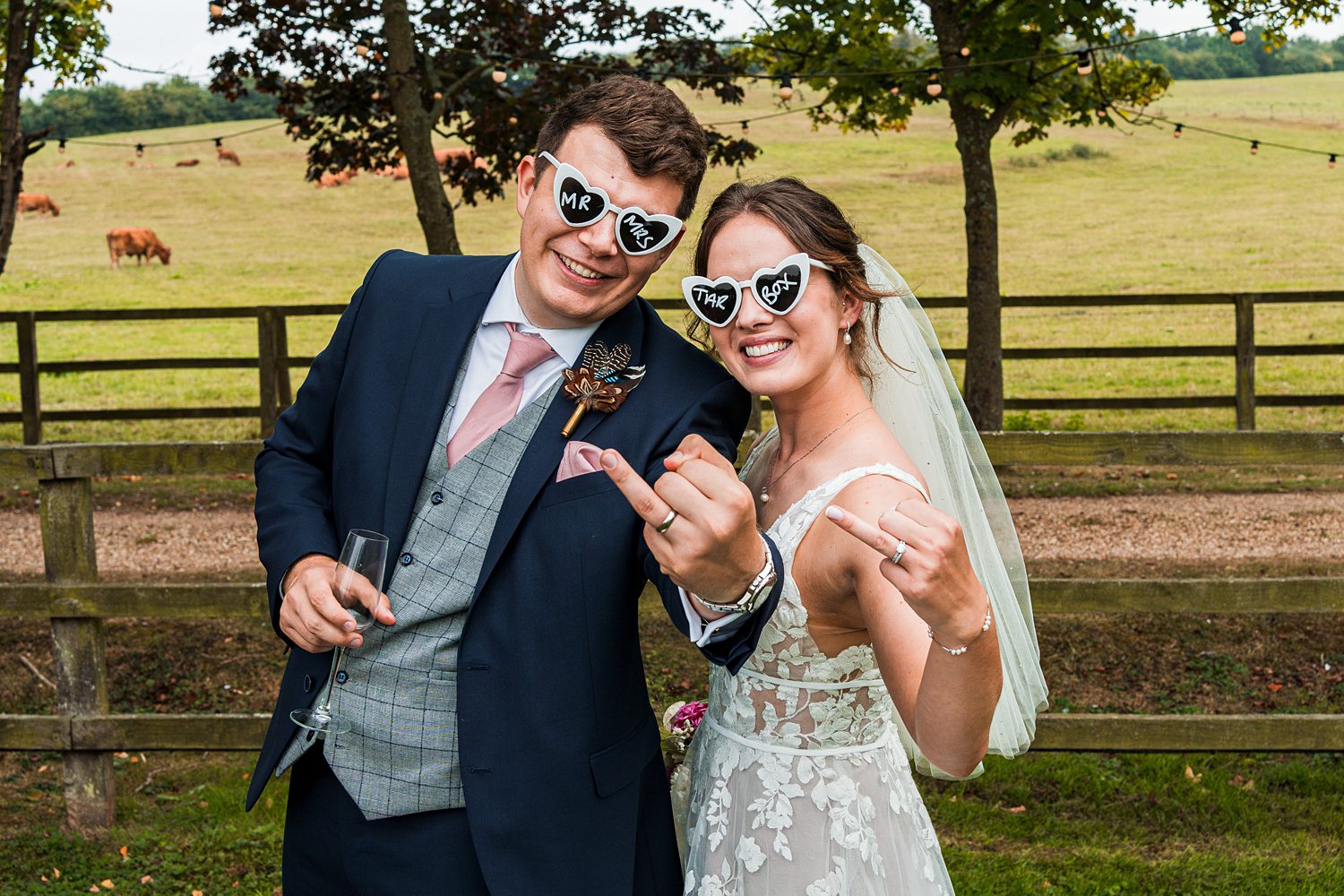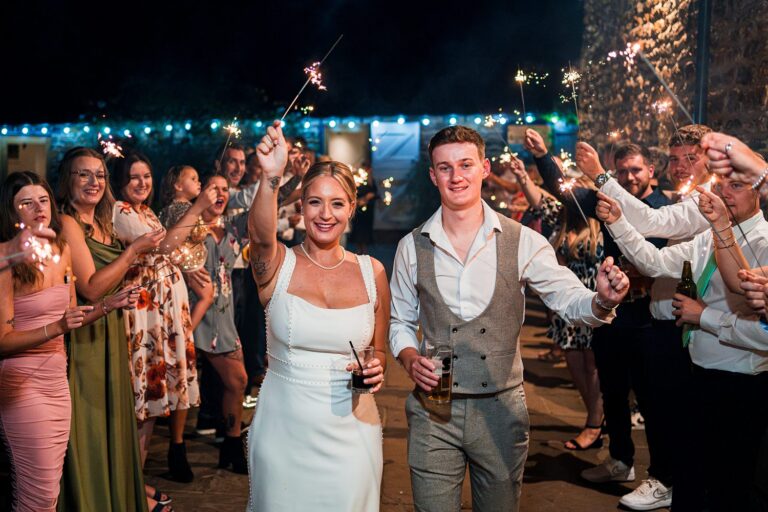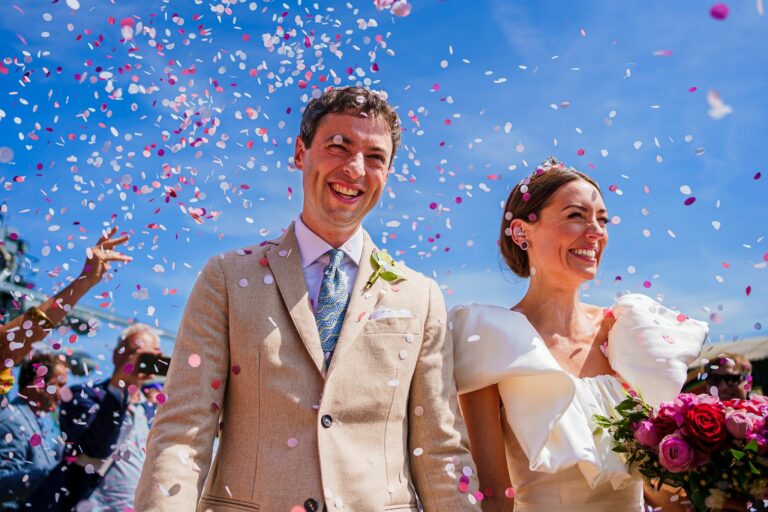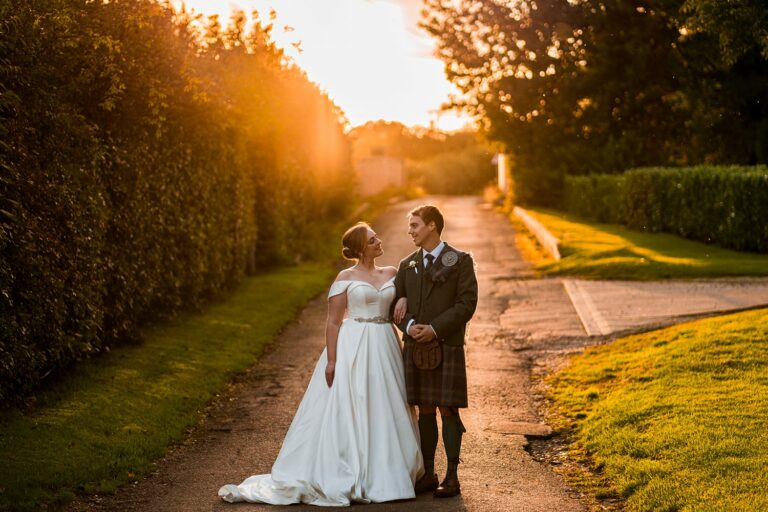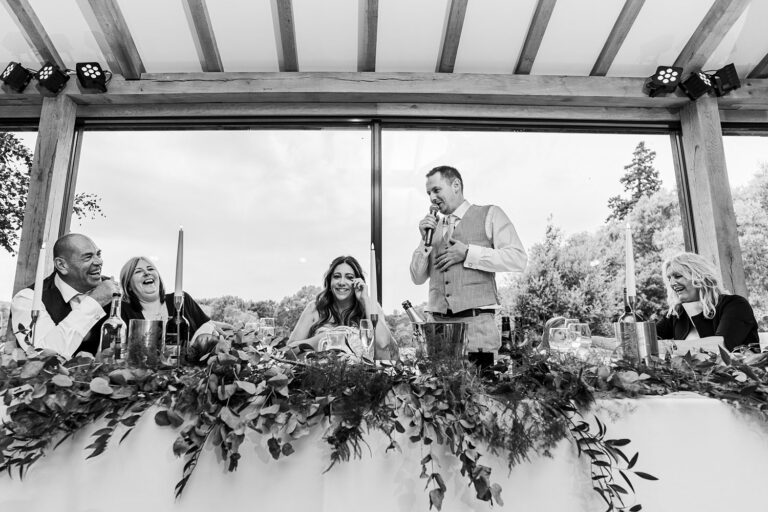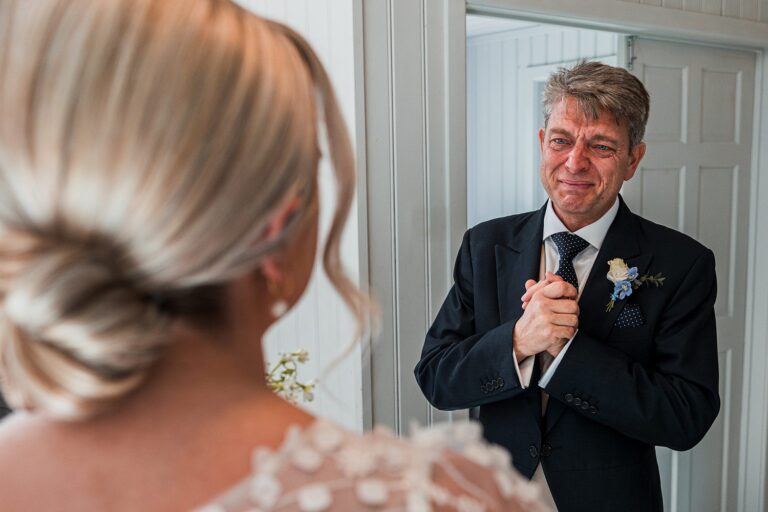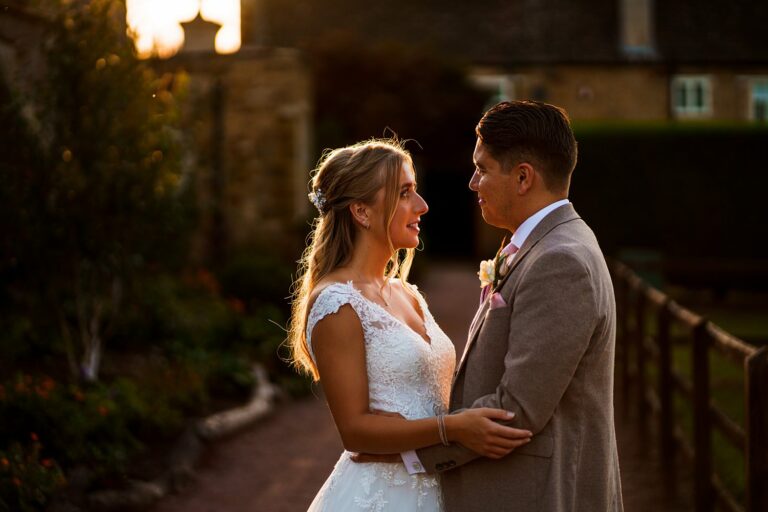The Best Month to Get Married in the UK: Your Ultimate Guide to Wedding Season
Planning your dream wedding in the UK is exciting and rewarding. But, picking the right time is key. The UK has stunning settings, from historic castles to beautiful Barns, to picturesque countryside. It’s a top choice for couples wanting to say “I do”.
Knowing the wedding season and what affects your day is vital. It helps make your celebration smooth and memorable.
Key Takeaways
- Discover the most popular and least popular months to get married in the UK.
- Understand the benefits and considerations of planning a wedding during peak and off-peak seasons.
- Learn how to choose the best wedding date and season that aligns with your budget, guest availability, and personal preferences.
- Explore the unique charms of getting married in the UK, from picturesque settings to intimate atmospheres.
- Gain expert insights on avoiding common mistakes and creating the perfect wedding day in the UK.
Unique Experience of a Wedding in the UK
Planning your wedding in the UK is a special experience. It offers charming settings to an intimate atmosphere. This makes your wedding unforgettable for you and your loved ones.
Picturesque Settings and Backdrops
The UK is full of stunning landscapes and architectural wonders. These provide couples with many beautiful venues for their big day. Imagine saying your vows in front of a castle, a manor house, or a countryside estate.
These unique locations add magic to your wedding. They make your day truly special and unforgettable.
Intimate and Personal Atmosphere
Having your wedding in the UK can make it more intimate. It’s great for couples who love close gatherings. You can connect deeply with each guest, making the event meaningful and memorable.
The UK’s warm venues and culture add to this personal feel. They help create an unforgettable experience for everyone.
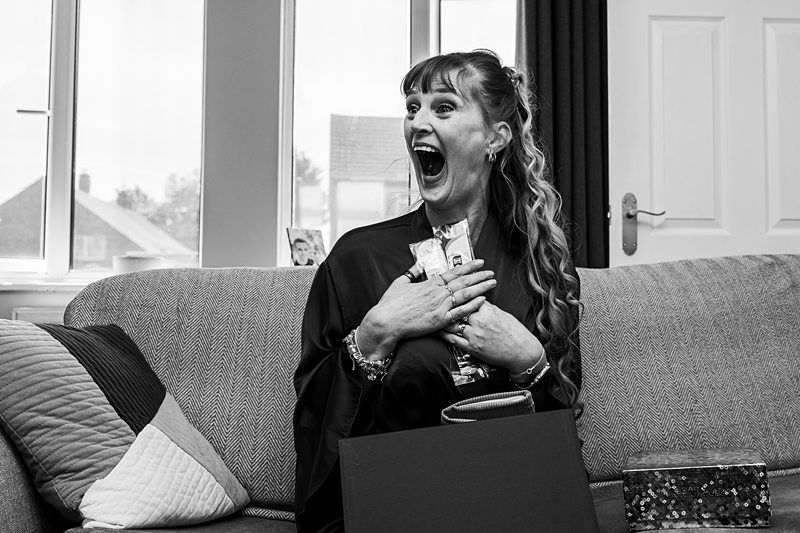
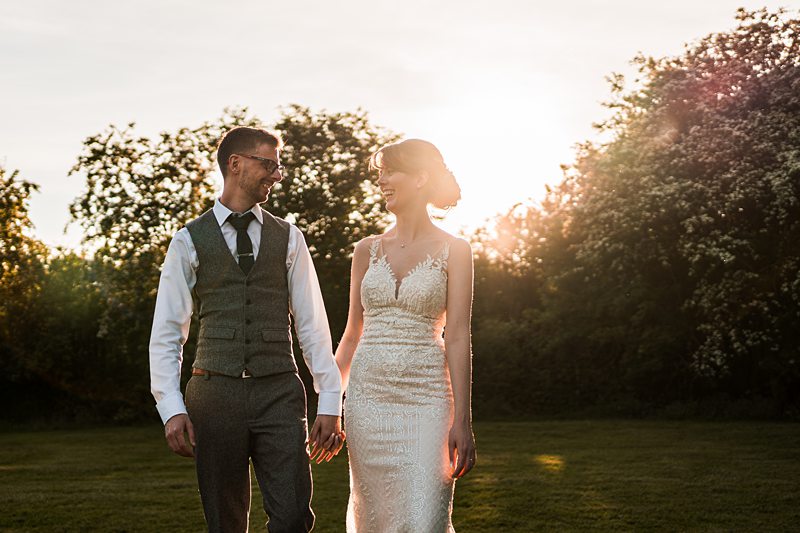
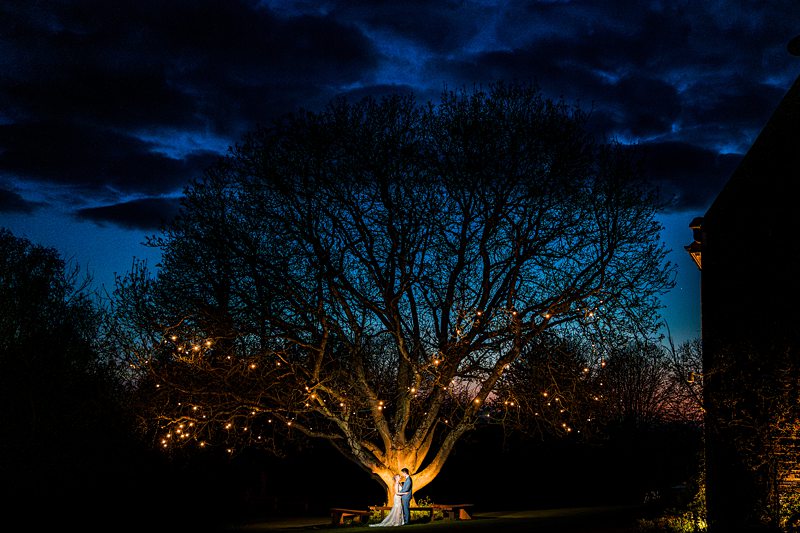
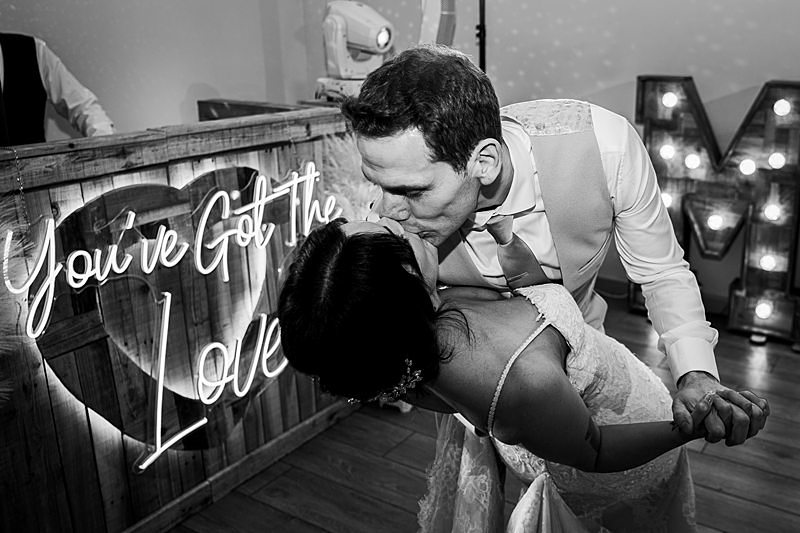
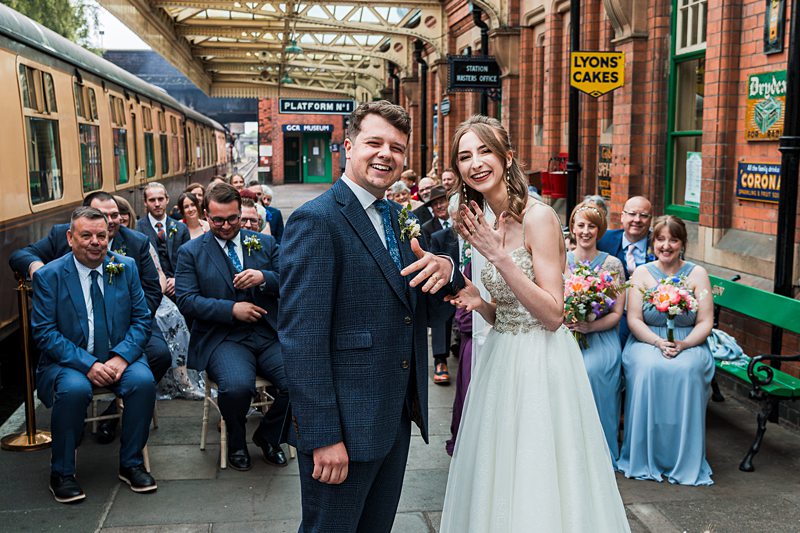
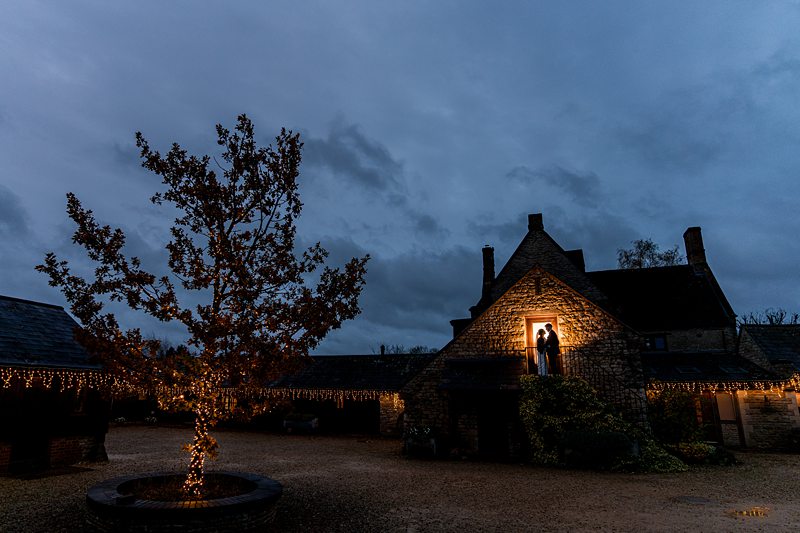
What is the best time of year to get married in the UK?
Planning your dream wedding in the UK? The best time can really make a difference. Weather, vendor availability, and prices all play a part. Knowing the wedding season well is key for a perfect day.
August is the top month for UK weddings, with 18% of couples saying ‘I do’. July follows closely with 14%. May and June also see a lot of weddings, with 13% and 12% respectively.
Spring, especially May, is great for weather and temperatures. But, venues and vendors might cost less in March. This makes March a budget-friendly choice.
Autumn, like September, October, and November, offers a quieter vibe and possibly cheaper prices. But, be ready for more rain.
Winter weddings, in January and February, are the cheapest. Yet, the weather can be unpredictable, and some venues might not be available.
So, the best time to marry in the UK varies by what you want and can afford. Being flexible helps you find the perfect time for your special day.
Below you will find a breakdown of each season, and why each has it’s own advantages.
Why a Spring Wedding is the Best season to Get Married
Spring is often considered the best season to get married for several reasons, blending the beauty of nature with ideal conditions for celebrations. Here are some key reasons why spring is such a popular choice:
1. Mild and Pleasant Weather
Spring offers moderate temperatures, making it a comfortable time for outdoor weddings. The weather is neither too hot nor too cold, providing a perfect balance for guests and couples alike to enjoy the day without discomfort. It’s also ideal for outdoor venues like gardens, beaches, or vineyards.
2. Abundance of Flowers and Fresh Foliage
Spring is synonymous with new life, and this is reflected in the stunning array of blooming flowers. From roses to tulips, lilies, and peonies, spring offers a rich palette of natural décor, helping create a romantic and fresh ambiance. Floral arrangements are also more diverse and typically less expensive due to the abundance of in-season blooms.
3. Symbolism of Renewal and New Beginnings
Spring represents renewal, growth, and fresh starts—symbolic of marriage itself. As nature blooms around you, the atmosphere feels infused with the energy of new beginnings, which can add deeper meaning to your wedding vows and celebration.
4. Ideal for Travel and Honeymoons
Spring is a great season for honeymoon travel. The temperatures are comfortable in many popular destinations around the world, from tropical beaches to European cities, giving couples many appealing options for their post-wedding getaway.
5. More Availability of Venues and Vendors
While spring is a popular season for weddings, it doesn’t have the peak-season pressures of summer. Couples may find that venues, caterers, and photographers have more availability in early spring compared to summer or fall, which are more heavily booked.
6. Natural Lighting for Photos
The soft, diffused lighting of spring is ideal for wedding photography. Longer daylight hours allow for golden hour photos, and the natural beauty of spring landscapes provides a stunning backdrop without the harsh shadows of summer sun.
7. Vibrant Colour Schemes
The colours of spring, from pastel pinks and blues to bright greens and yellows, lend themselves beautifully to wedding décor. Spring offers a fresh, vibrant color palette that can make everything from bridesmaids’ dresses to table settings look lively and inviting.
8. Festive and Uplifting Mood
After the gloom of winter, spring brings with it a sense of rejuvenation and optimism. This creates a naturally joyful atmosphere for a wedding. Guests are likely to be in high spirits, happy to celebrate after the colder months.
Spring’s pleasant weather, symbolic freshness, and natural beauty all combine to make it one of the most romantic and visually stunning times to tie the knot.
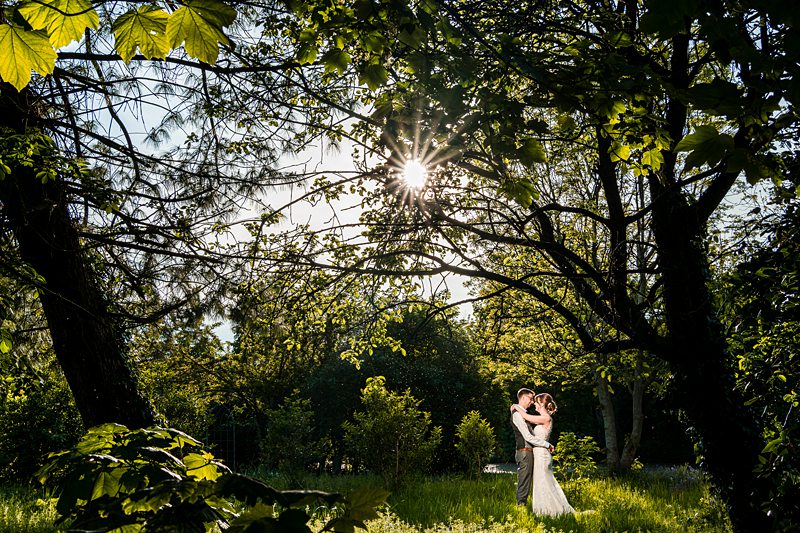
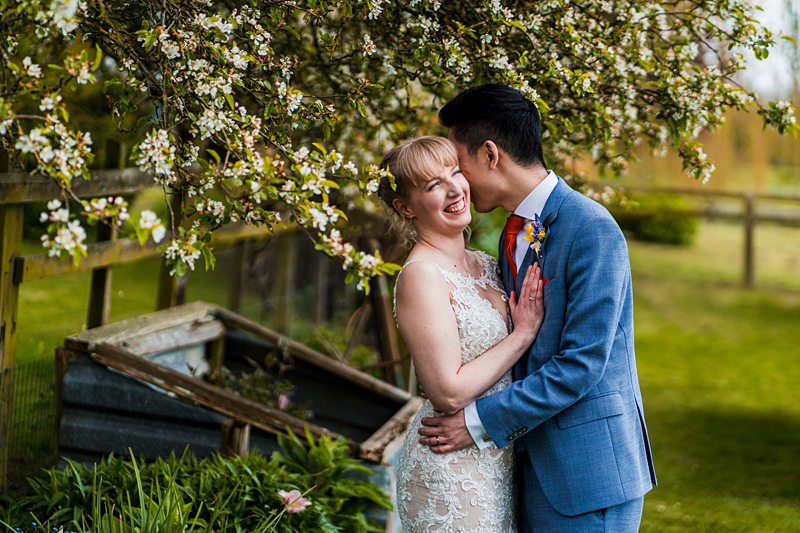
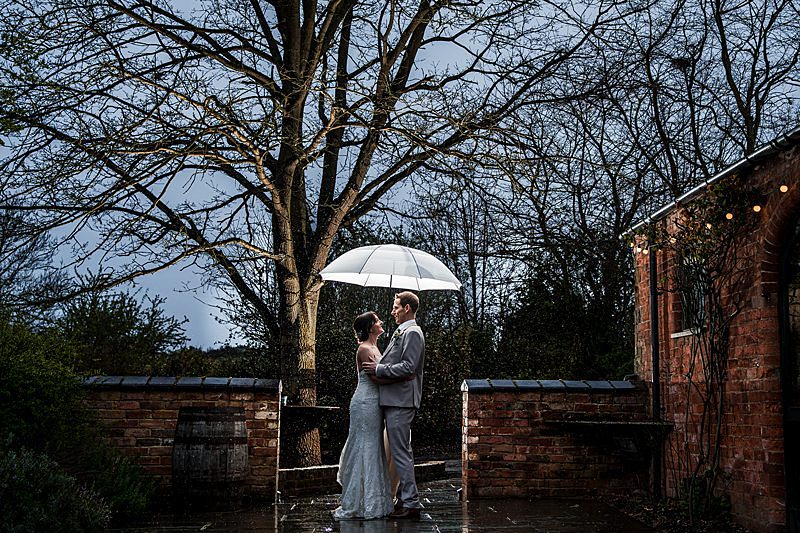
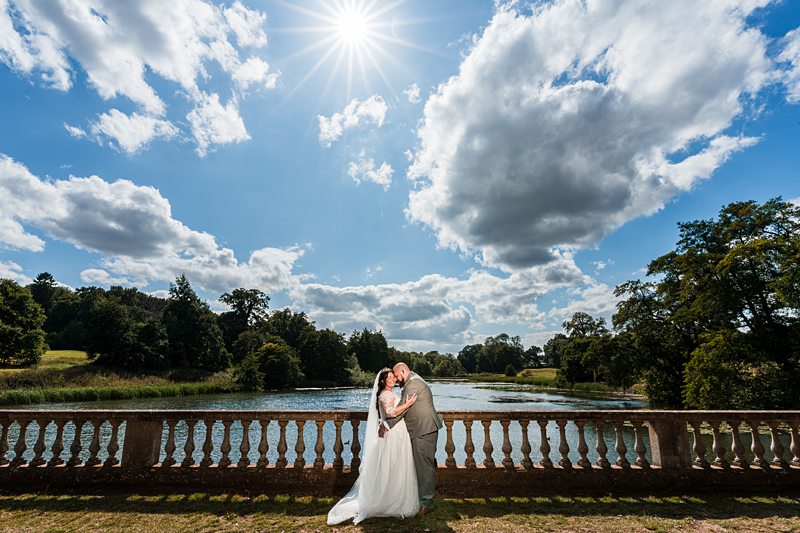
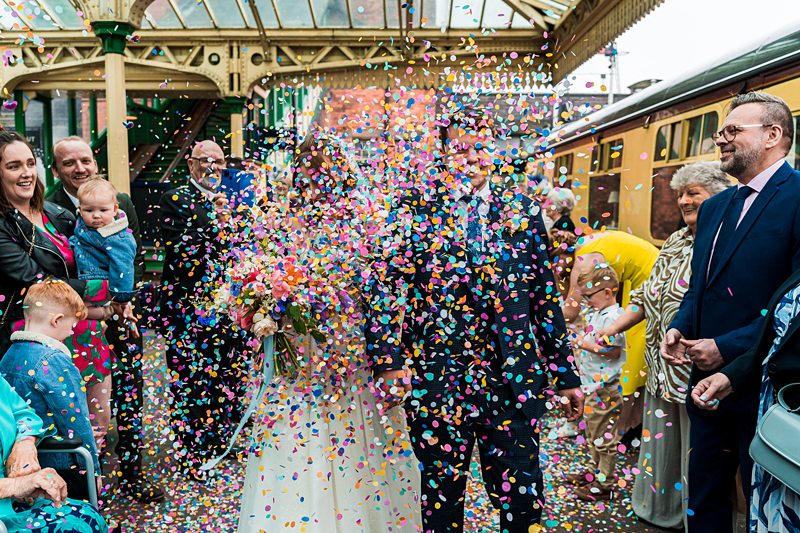
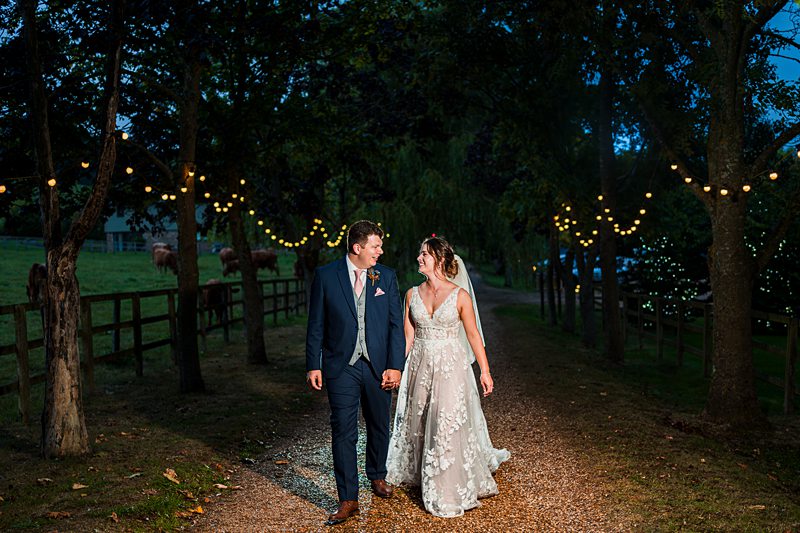
Why is a Summer Wedding the Best Season to get Married
Summer is considered the best season to get married in the UK for several reasons, primarily due to the more reliable weather, longer daylight hours, and the festive atmosphere that summer brings. Here are some key reasons why a summer wedding in the UK is so popular:
1. More Predictable and Warmer Weather
The UK’s notoriously unpredictable weather is less of a concern during summer, when the chances of sunshine and warm temperatures are much higher. Although it’s still the UK, where rain is always possible, summer offers the best odds for outdoor ceremonies and receptions without being disrupted by rain or cold.
2. Longer Daylight Hours
In summer, the days are much longer, with the sun setting as late as 9 PM or even later in some parts of the UK. This extended daylight is perfect for outdoor weddings and evening celebrations, allowing for more flexibility in scheduling the ceremony, photos, and reception without feeling rushed.
3. Outdoor Venues and Scenery
The UK is home to breathtaking landscapes, from historic gardens to coastal views and countryside estates. Summer provides an ideal opportunity to take full advantage of these scenic outdoor venues, which look their best when everything is in full bloom under bright blue skies.
4. Perfect for Travel and Destination Weddings
Summer is vacation season for many people, meaning guests are more likely to be able to attend weddings, especially if travel is required. Additionally, couples can take advantage of the summer season for destination weddings within the UK, such as the stunning beaches of Cornwall or the Highlands of Scotland.
5. Vibrant and Seasonal Flowers
Summer is a peak season for many types of flowers, giving couples access to a wide variety of beautiful, seasonal blooms. From roses to sunflowers, dahlias, and hydrangeas, the availability of these flowers helps create stunning arrangements that are both fresh and budget-friendly.
6. Festival-Like Atmosphere
Summer in the UK brings with it a natural sense of celebration and joy, similar to the festive atmosphere of outdoor festivals and garden parties. A summer wedding can easily adopt this laid-back, fun vibe, with activities like lawn games, outdoor dining, and live music under the stars. It’s perfect for couples looking for a relaxed, less formal wedding style.
7. Ideal for Honeymoons
With summer being the peak travel season, couples have more options for honeymoon destinations that are in their prime, whether in Europe or beyond. Southern European countries like Italy, Spain, or Greece are especially attractive in the summer, offering sunny beaches, vibrant cities, and romantic countryside escapes.
8. More Menu Options for Food and Drink
Summer weddings allow for more varied and lighter menu options. Couples can choose fresh, seasonal dishes, like grilled meats, seafood, salads, and fruits, as well as refreshing summer drinks like Pimm’s, cocktails, and champagne. This gives caterers the flexibility to craft a wedding menu that’s both delicious and perfectly suited to the season.
9. Holiday Vibes for Guests
Many people are already in a vacation mindset during the summer, which can help create a more relaxed and cheerful mood at the wedding. Whether guests are taking a break from work or have planned their holidays around the wedding, the warm weather and festive feel can make the event feel like a mini holiday for everyone.
10. Flexible Fashion Choices
Summer allows brides and grooms to explore lighter, more breathable fabrics for their wedding attire. Brides can choose from a variety of dress styles, including more relaxed or open-back designs, while grooms can opt for lightweight suits or even more casual attire for outdoor or beach settings.
In the UK, a summer wedding offers the most reliable weather, beautiful natural settings, and a festive atmosphere that makes it one of the most popular times to say “I do.” The longer days and warm evenings create the perfect backdrop for outdoor celebrations, giving couples the opportunity to make their wedding day a magical, unforgettable event.
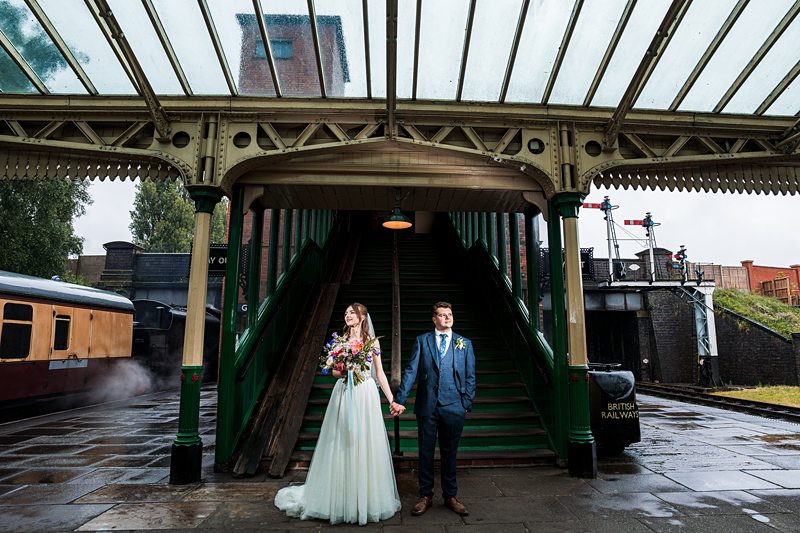
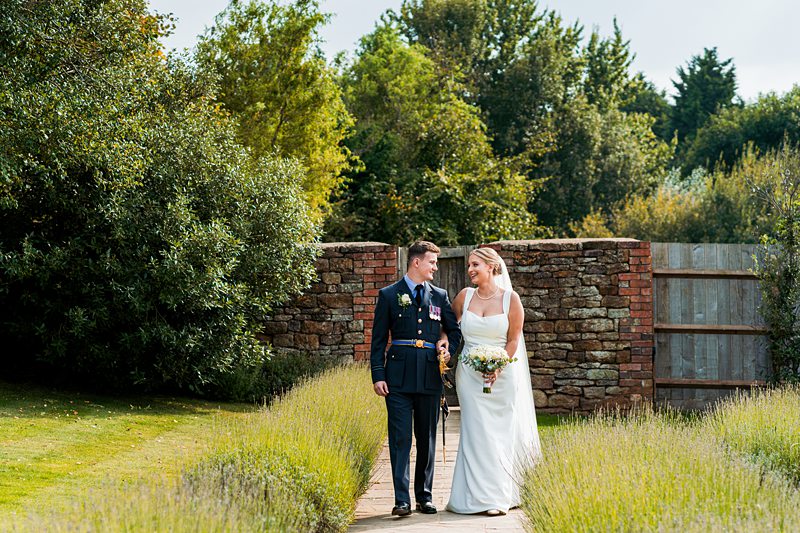
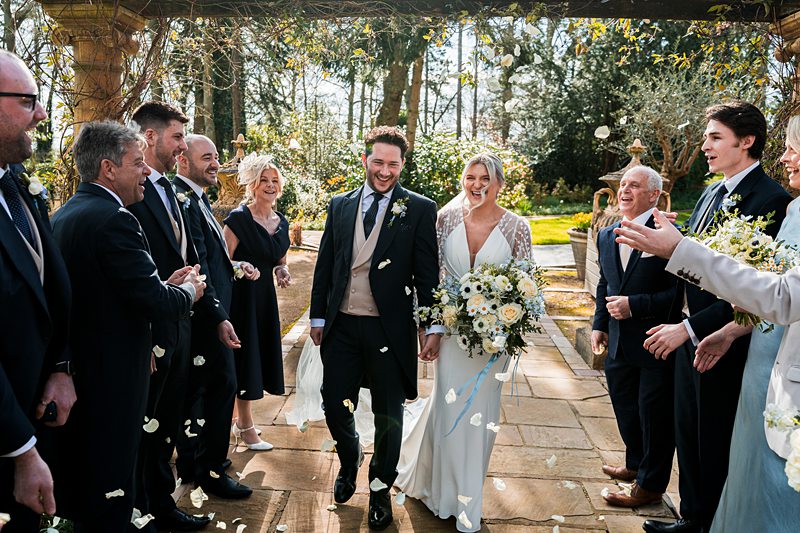
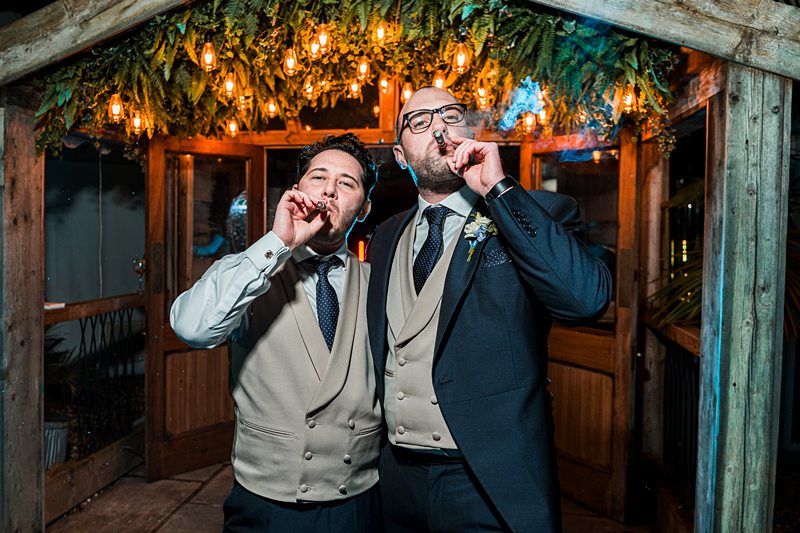
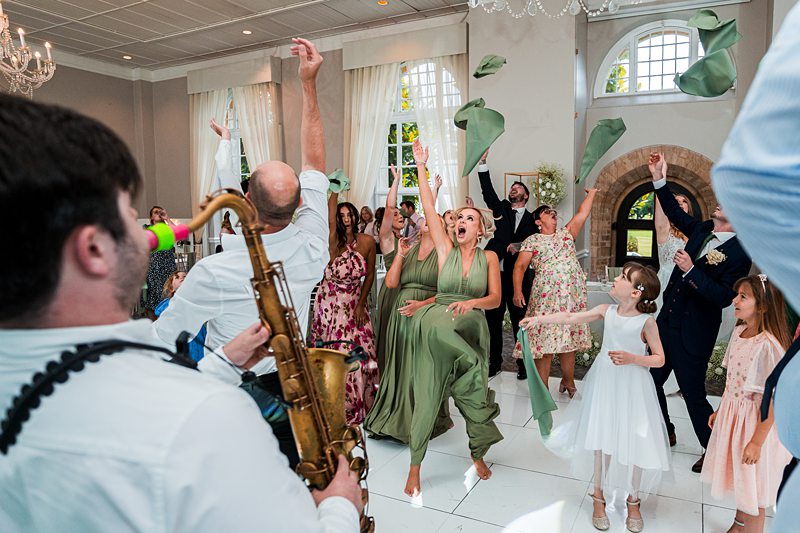
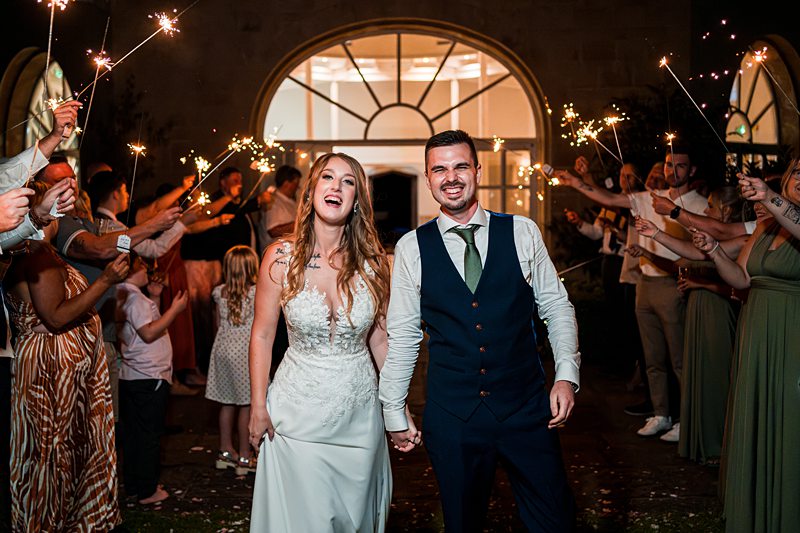
Why is an Autumn wedding the best season to get married
An autumn wedding in the UK offers a unique and charming atmosphere, making it a highly attractive season for couples to tie the knot. Here are some key reasons why autumn is often considered the best time to get married in the UK:
1. Stunning Natural Scenery and Colours
Autumn is known for its rich, vibrant colour palette, with nature offering shades of red, orange, yellow, and gold as leaves change and landscapes transform. These natural tones provide a stunning backdrop for wedding photos and décor, creating a warm, romantic atmosphere that’s hard to match.
2. Milder, Comfortable Weather
UK autumn weather tends to be milder than summer’s extremes or winter’s chill. While there’s still a chance of rain, the cooler temperatures are often more comfortable for both the couple and guests compared to the heat of summer, making it easier to enjoy the day without overheating or freezing.
3. More Venue Availability
Autumn is not as competitive as the peak summer wedding season, meaning there’s often more availability at popular wedding venues, and sometimes at a lower cost. This gives couples more flexibility when choosing their dream location and can help with budget considerations. You may also have better access to top vendors like photographers and caterers.
4. Seasonal Décor and Themes
Autumn weddings naturally lend themselves to cosy, rustic, and elegant themes. Think candlelit receptions, wood accents, pumpkins, and autumnal foliage. These seasonal elements create a warm, inviting ambiance, perfect for intimate gatherings. You can also incorporate seasonal foods and drinks like warm cider, mulled wine, and harvest-inspired dishes.
5. Unique Menu Options
Autumn is a great time for rich, hearty seasonal dishes. Wedding menus can feature comforting, seasonal ingredients like root vegetables, squashes, apples, and spices. You can also offer unique desserts like apple pie, spiced cakes, and other autumn-inspired sweets. These flavors often resonate with guests and add a festive, homey feeling to the celebration.
6. Golden Hour Lighting for Photography
Autumn’s softer, golden light is ideal for wedding photography. The angle of the sun in the fall creates a warm, flattering glow that enhances photos, especially during the late afternoon “golden hour.” Combined with the stunning autumn foliage, it makes for breathtaking wedding photos.
7. Less Crowded Honeymoon Destinations
Since autumn is considered the shoulder season for many popular travel destinations, couples can often find better deals on flights and accommodation. Beach resorts, European cities, and other honeymoon spots are less crowded than during the busy summer months, allowing newlyweds to enjoy a more relaxing and intimate experience.
8. Cosy, Intimate Vibes
Autumn has a naturally cozy feel, and couples can incorporate this into their wedding. From hosting receptions in historic barns or rustic country manors to incorporating fireplaces, candles, and soft lighting, the season offers a perfect opportunity to create an intimate, romantic setting that feels warm and inviting.
9. Seasonal Flowers
Autumn offers beautiful seasonal flowers that work well with the rich, earthy tones of the season. Dahlias, chrysanthemums, marigolds, and autumn foliage can create striking floral arrangements and bouquets. These flowers complement the season’s natural colours and can be used to add depth and texture to the décor.
10. Guest Comfort and Availability
Guests are often more available to attend autumn weddings, especially as it doesn’t fall within the typical summer holiday period. With the holiday season still a few months away, guests are likely to be less busy, and the cooler weather can make it easier for them to dress comfortably in suits, dresses, or formalwear without the discomfort of summer heat.
11. Romantic Atmosphere
Autumn exudes a romantic, slightly nostalgic atmosphere with its crisp air, golden sunlight, and falling leaves. The season invites a sense of closeness and warmth, which is ideal for weddings. Whether it’s an outdoor ceremony under colourful trees or an indoor reception lit by candles and string lights, the ambiance of autumn is inherently romantic.
12. More Budget-Friendly
With summer being the peak wedding season, autumn offers a more cost-effective option. Many venues, vendors, and suppliers offer off-peak discounts, allowing couples to plan a beautiful wedding without the higher costs of a summer date. This can free up more of the budget for extras like décor, entertainment, or even a more luxurious honeymoon.
13. Less Weather Stress
Unlike summer, where couples are often concerned about extreme heat, or winter, with fears of snow or freezing conditions, autumn tends to offer more moderate weather. While rain is still a consideration, UK couples can generally plan an autumn wedding knowing they won’t have to deal with the unpredictability of extreme weather, making the day feel more relaxed.
14. Layered Fashion Opportunities
Autumn allows for unique and stylish wedding fashion choices. Brides can opt for dresses with sleeves, lace overlays, or capes, while grooms can incorporate wool suits or tweed for a more seasonal look. Couples can also play with accessories like scarves, shawls, or cozy wraps, adding an elegant touch to their attire.
15. Festive Lead-Up to Winter Holidays
Autumn weddings benefit from the excitement and anticipation of the holiday season approaching. The cozy atmosphere of autumn naturally transitions into the festive spirit of late autumn and winter, allowing couples to incorporate a touch of holiday warmth and magic if they wish.
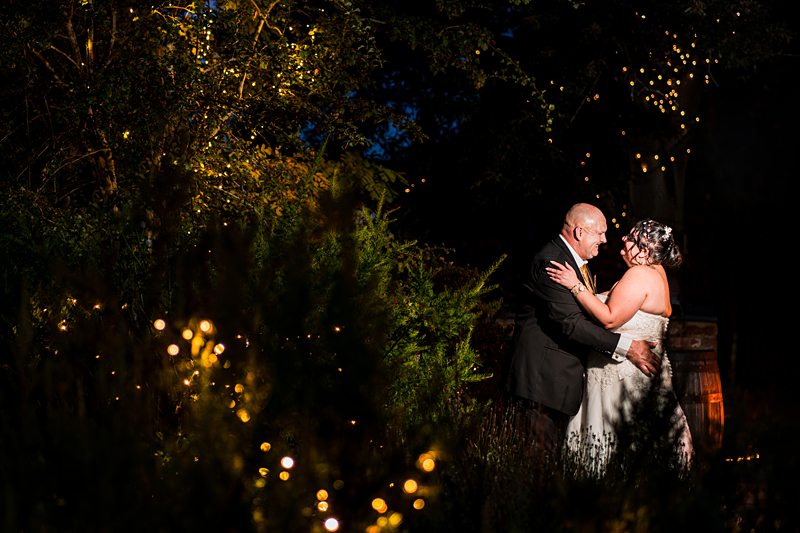
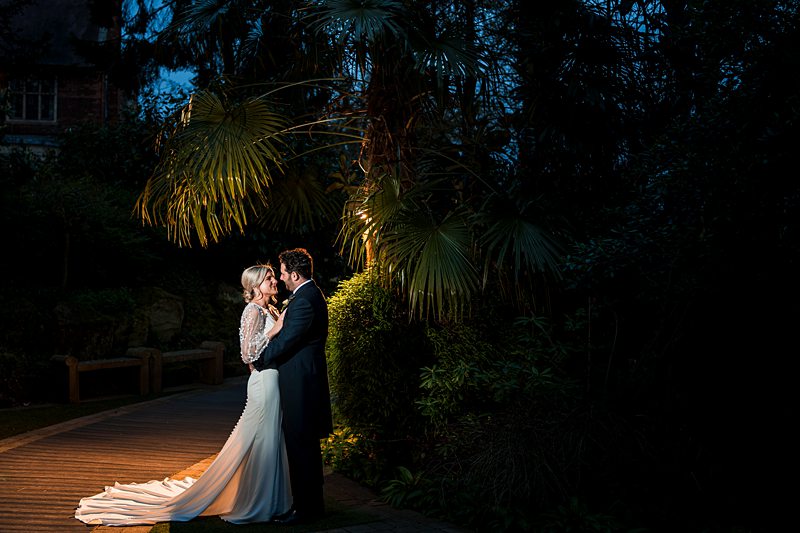
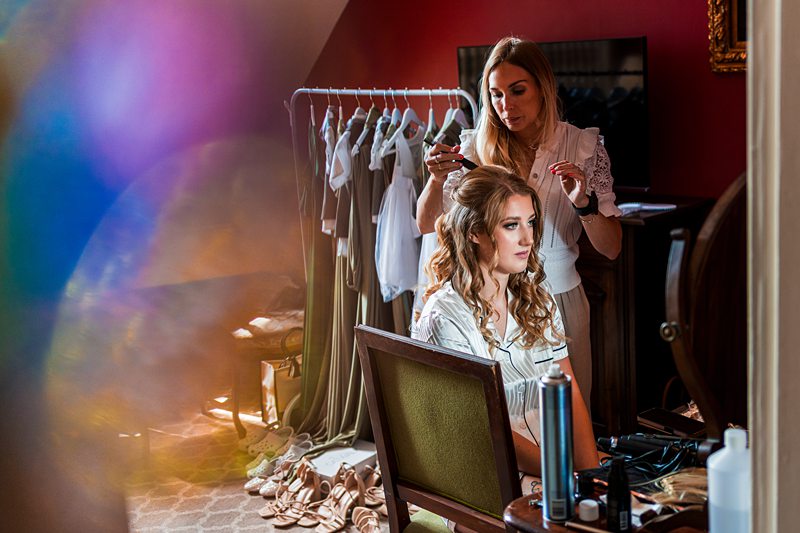
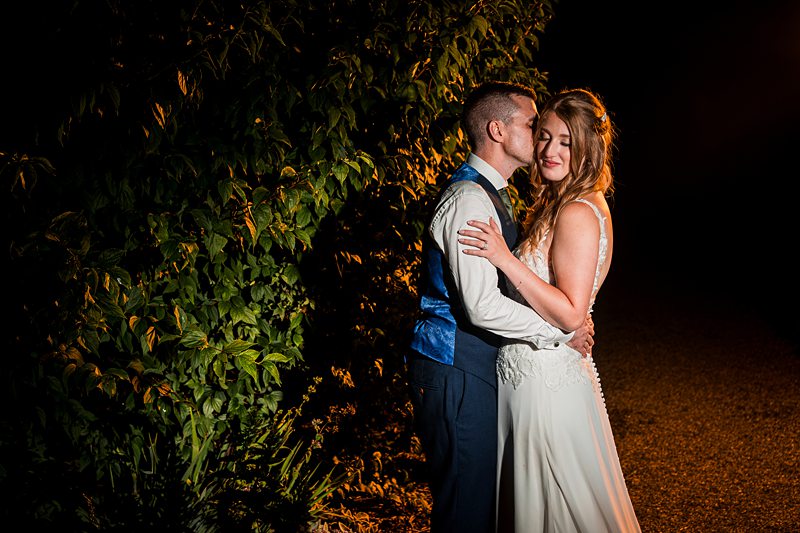
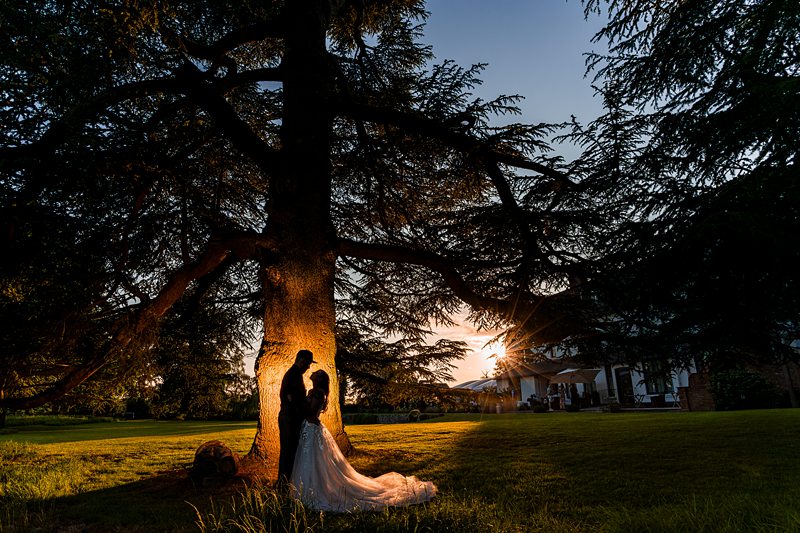
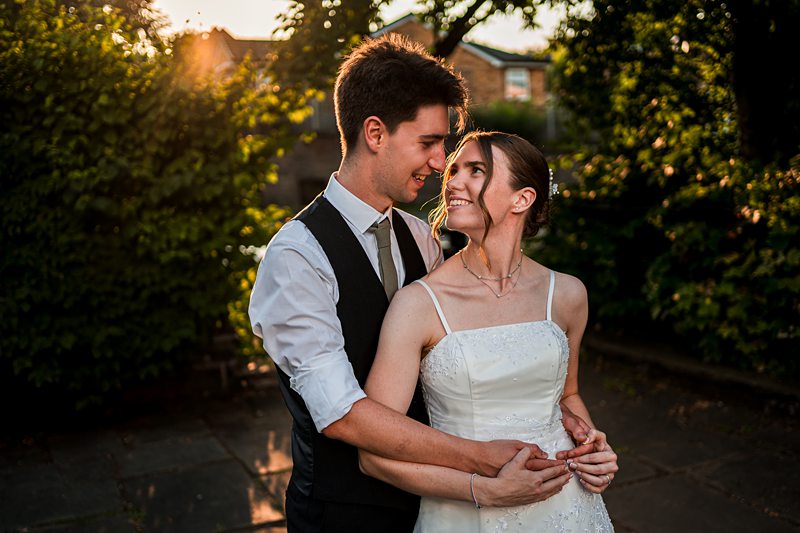
Why is a Winter wedding the best season to get married
A winter wedding in the UK offers a magical and enchanting atmosphere that’s hard to replicate in other seasons. While summer and autumn weddings are popular, winter weddings have their own special charm and benefits. Here’s why a winter wedding in the UK might be the best season to get married:
1. Magical Winter Atmosphere
Winter has a magical and cozy feel, perfect for a romantic wedding celebration. Whether it’s the possibility of a light dusting of snow, frost-covered landscapes, or twinkling fairy lights, winter weddings offer a unique atmosphere that can feel like a real-life fairytale. The festive holiday season adds to the warmth and joy.
2. Festive and Holiday Spirit
If you’re getting married around Christmas or New Year, the holiday spirit adds an extra layer of festivity and joy to your wedding day. You can incorporate festive decorations like Christmas trees, wreaths, and candles into your wedding décor, and offer seasonal treats like mulled wine, hot chocolate, or mince pies. This makes a winter wedding feel extra special and celebratory.
3. Stunning Indoor Venues
Winter weddings are often best suited for grand indoor venues like historic castles, country manors, or elegant hotels. These venues, with their cozy fireplaces, grand ballrooms, and warm lighting, offer a perfect setting for a romantic winter celebration. Winter weddings also give you the opportunity to focus more on creating a luxurious indoor atmosphere, with beautiful lighting and décor.
4. More Availability and Lower Costs
Winter is the off-peak season for weddings in the UK, which means that venues and vendors often have more availability and are more affordable. This is a huge advantage for couples looking to book their dream venue or hire top-notch suppliers without the competition and higher prices of summer or autumn weddings.
5. Unique and Memorable Experience
Winter weddings are less common than those in summer, so they stand out and feel more unique. Your guests are likely to remember a winter wedding more vividly, as it’s not as typical as other seasonal celebrations. The novelty of a winter wedding, combined with the cozy and festive atmosphere, creates a memorable experience for everyone involved.
6. Stunning Winter Fashion
Winter allows for elegant and stylish fashion choices that you wouldn’t get in warmer months. Brides can wear luxurious fabrics like velvet, satin, or lace with long sleeves, and accessorize with faux fur wraps, capes, or stylish shawls. Grooms can opt for richer fabrics like wool or tweed, adding a sense of warmth and sophistication to their attire. Winter fashion is perfect for embracing layers, textures, and dramatic elegance.
7. Romantic Candlelight and Lighting
With shorter days and early sunsets, winter weddings are perfect for creating a romantic atmosphere with candles, fairy lights, and soft lighting. The glow of candlelight and twinkling lights can transform any venue into a warm and magical space, adding a sense of intimacy and romance. This lighting is ideal for a cozy, heartwarming winter celebration.
8. Delicious Seasonal Menus
Winter offers a wonderful opportunity to create hearty, seasonal wedding menus that are both comforting and indulgent. You can serve rich, warming dishes like roast meats, winter vegetables, soups, and decadent desserts such as sticky toffee pudding or Christmas cake. Seasonal drinks like mulled wine, spiced cider, and hot chocolate can also enhance the cozy winter feel.
9. Winter Honeymoon Destinations
Getting married in winter opens up exciting options for honeymoon destinations. Couples can head to tropical destinations like the Caribbean or Southeast Asia to escape the cold, or embrace the winter vibe with a snowy honeymoon in the Alps, Iceland, or Scandinavia. The flexibility of winter honeymoons allows couples to choose between winter wonderlands or sun-soaked escapes.
10. Cozy and Intimate Vibes
Winter weddings naturally create a cozy, intimate atmosphere, which is perfect for couples who want a smaller, more personal celebration. The chill in the air encourages guests to gather indoors around fireplaces, enjoy warm drinks, and connect in a close-knit, cozy environment. This sense of closeness can make a winter wedding feel extra special.
11. Breathtaking Winter Photography
The winter season offers stunning photo opportunities, from snowy landscapes and frost-covered trees to misty mornings and golden winter sunsets. If it snows, you’ll have a rare chance for beautiful, whimsical wedding photos. Even without snow, the soft lighting and dramatic winter skies can create breathtaking images that feel ethereal and romantic.
12. Less Weather Stress
While winter weather in the UK can be unpredictable, couples planning a winter wedding often prepare for indoor celebrations, which eliminates much of the weather stress. You’re not relying on sunshine for an outdoor ceremony or reception, so there’s less concern about rain or cold affecting your plans. With the right venue, winter weather adds to the atmosphere rather than being a worry.
13. Seasonal and Festive Décor
Winter gives couples the chance to embrace rich, festive décor themes. Think about using lush evergreen foliage, holly, berries, pine cones, and glittering lights in your wedding design. You can also incorporate bold, dramatic color palettes like deep reds, emerald greens, and metallics for a glamorous winter look. This season’s décor can make your wedding feel luxurious, cozy, and magical.
14. Flexible Travel for Guests
Winter weddings can be easier for guests to attend, as the holiday season often means people are already planning travel and time off. With careful planning around Christmas and New Year, your guests can incorporate your wedding into their holiday plans. Plus, traveling in winter often means lower airfare and accommodation prices for both you and your guests.
15. Creative Entertainment Options
Winter weddings open the door to creative entertainment ideas that match the season. You could have a live band or carol singers, set up a hot chocolate or mulled wine station, or even include winter-themed activities like ice skating, if the venue allows. These seasonal touches add a fun and memorable element to your wedding celebration.
16. Memorable for Guests
Winter weddings offer a special, memorable experience for your guests, especially if you incorporate festive or holiday elements. Guests are often excited to dress up for a winter event, and the unique atmosphere of a winter wedding makes it stand out from the more traditional summer celebrations. The cosy, intimate nature of winter weddings creates a warm and joyful experience that guests will cherish.
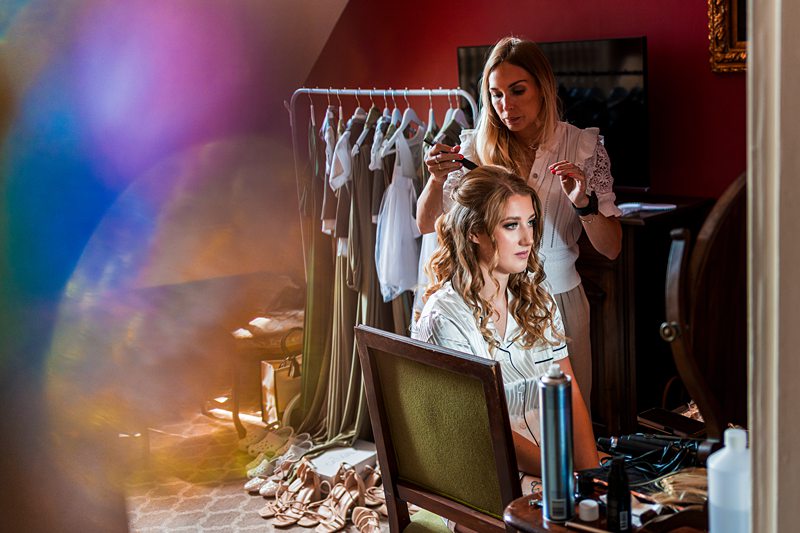
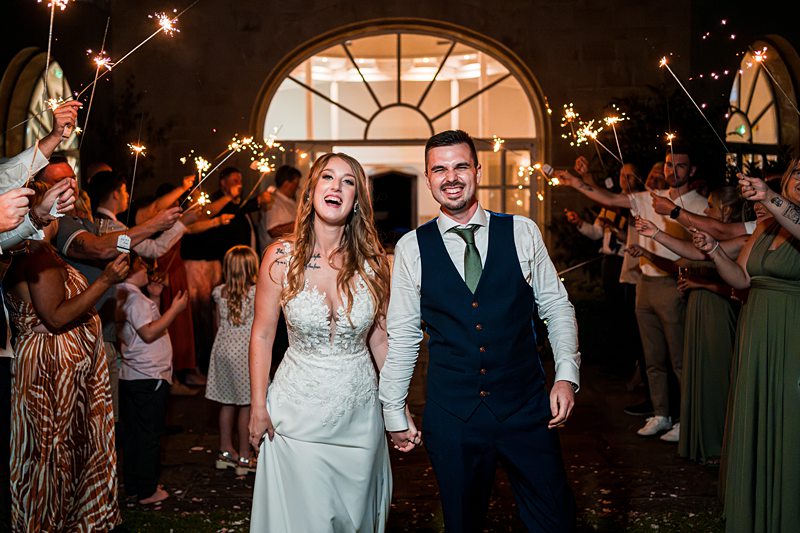
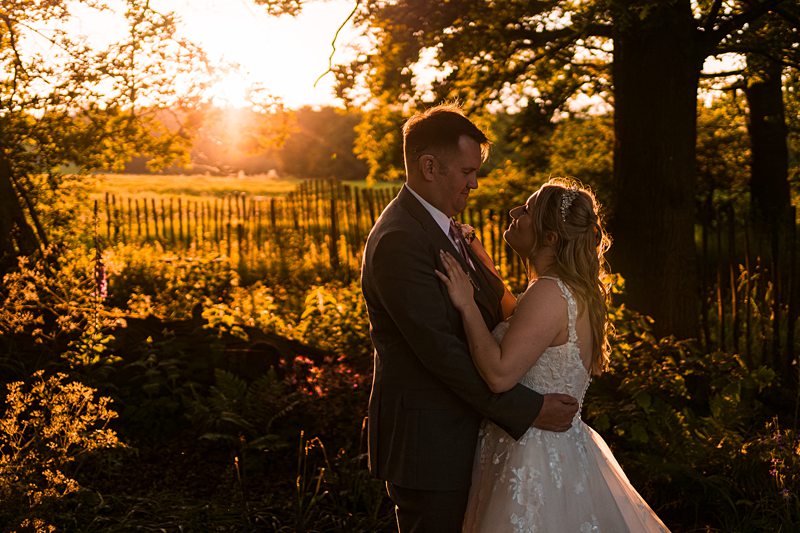

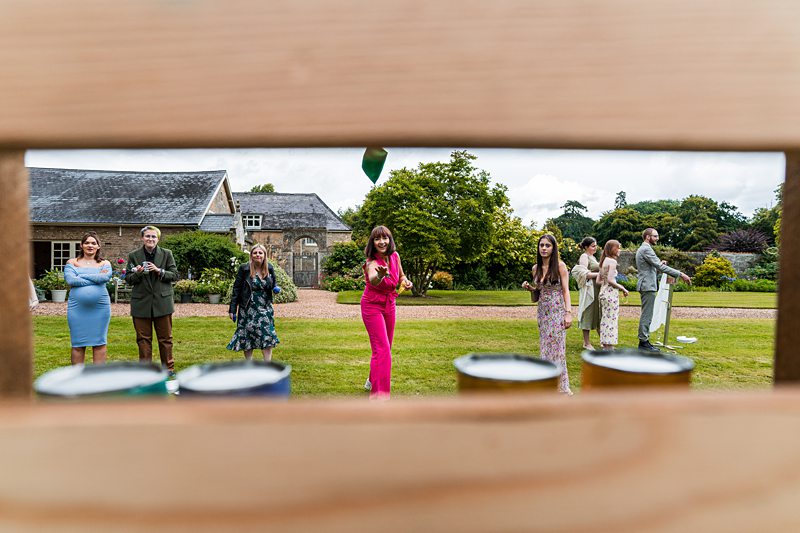
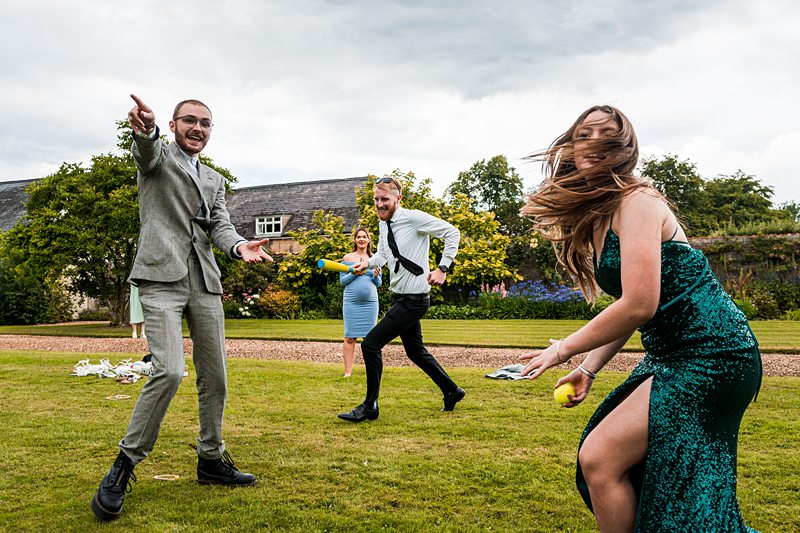
Key Considerations for Planning a UK Wedding
Planning a wedding in the UK needs careful thought about legal stuff and budgeting. It’s important to know the laws for getting married in the UK. Each country has its own rules.
Legal Requirements and Documentation
You must check the legal stuff for a UK wedding. This includes residency rules and needed documents. Make sure you have all the important papers, like birth certificates and passports.
Having the right paperwork is key to avoid any problems on your big day.
Budgeting and Cost-Effective Options
Creating a detailed budget is crucial for a UK wedding. Think about all costs, like travel, clothes, venue fees, and guest activities. Watch out for exchange rates and extra costs, like import taxes.
Look for ways to save money, like choosing a venue off-season or having a midweek wedding. This way, you can stay within your budget.
With good planning and attention to detail, your UK wedding will be unforgettable and stress-free. By sorting out the legal and budgeting bits, you can enjoy planning your dream wedding.
Avoiding Common Mistakes
Planning a wedding, especially one abroad, can be tough. But knowing common mistakes and acting early can help. It’s key to visit the destination before the wedding. This lets you check details, meet suppliers, and make sure the venue is right.
Don’t forget about legal stuff. It’s vital to talk to local authorities or legal experts. They can help you understand and get all the needed documents.
Visiting the Location in Advance
Visiting the location of your destination wedding is a must. It helps you sort out the last details. You can also meet with suppliers like caterers, florists, and photographers.
This visit lets you check if the venue is what you want. It’s a chance to fix any problems before the wedding.
Clear Communication with Guests
Talking clearly with your wedding guests is key when planning a wedding abroad. Give them all the info they need about travel, where to stay, and the wedding plan. This stops confusion and makes sure they’re ready for the big day.
Assigning tasks to your wedding party can also keep things running smoothly. For example, they can help gather guests for photos or guide people during the day.
By tackling these common mistakes and planning well, you can have a memorable and stress-free wedding. This will make your day special for you and your guests.
Types of Wedding Ceremonies in the UK
Planning your dream wedding in the UK means choosing from many types of ceremonies. You can pick from civil, religious, and symbolic ceremonies. Each option makes your special day unique and meaningful.
Civil Ceremonies
Civil ceremonies are legally binding weddings led by a government official, like a registrar. They are simple yet can be made personal with your vows, readings, and music. To get married in a registry office or approved venue, you must give notice to the local registrar 28 days before. This costs about £35 for each of you.
Religious Ceremonies
For a religious wedding, the UK has many choices, from traditional church weddings to faith-based ceremonies. You need to research the local religious institution’s requirements. But, you can make these ceremonies personal and meaningful with your own traditions.
Symbolic Ceremonies
Symbolic ceremonies are non-legal and let you be creative with your wedding. They’re great for couples who’ve already done the legal bits elsewhere. These ceremonies let you create a day that reflects your values and beliefs.
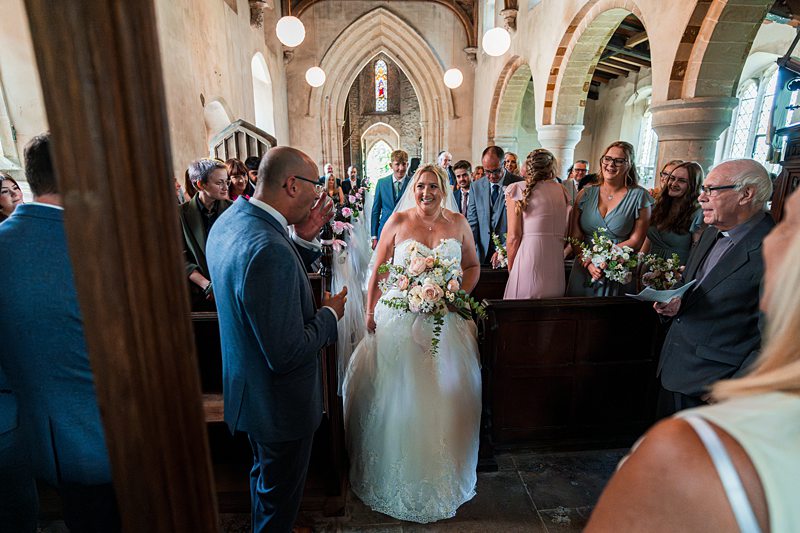
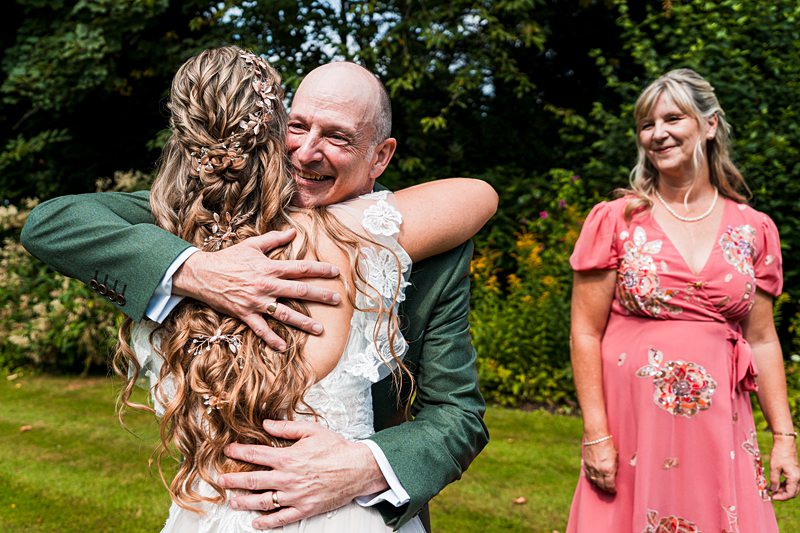
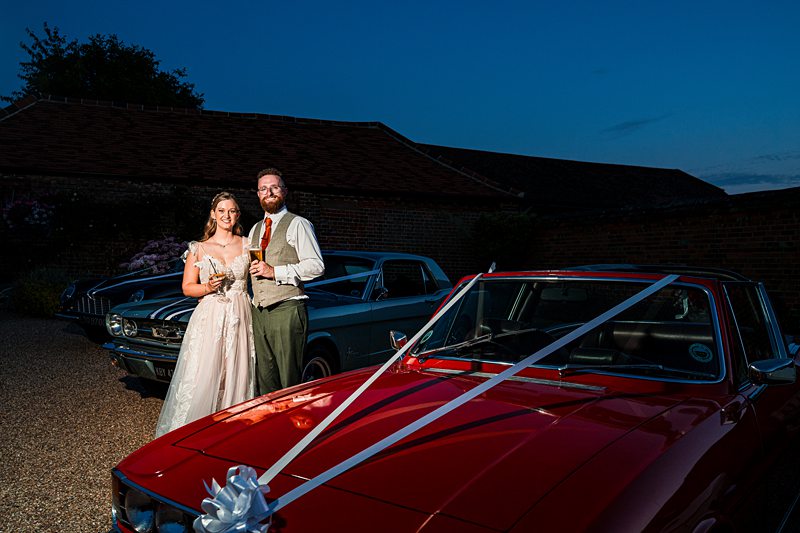
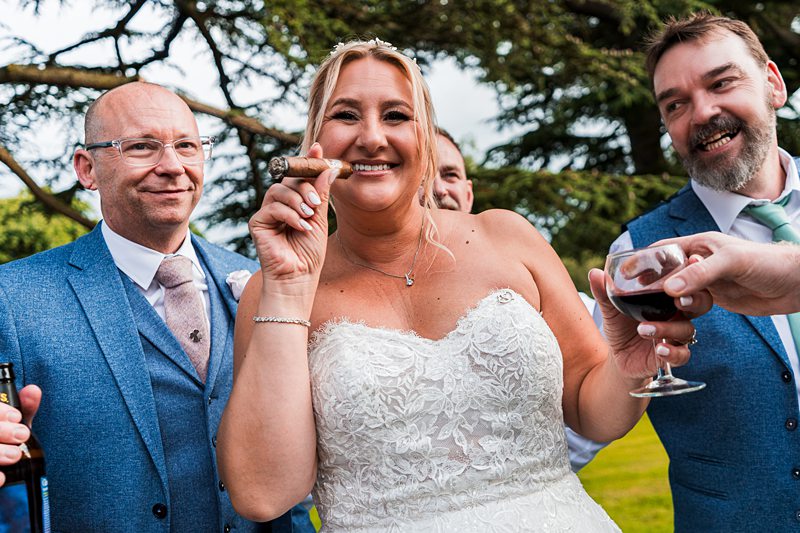
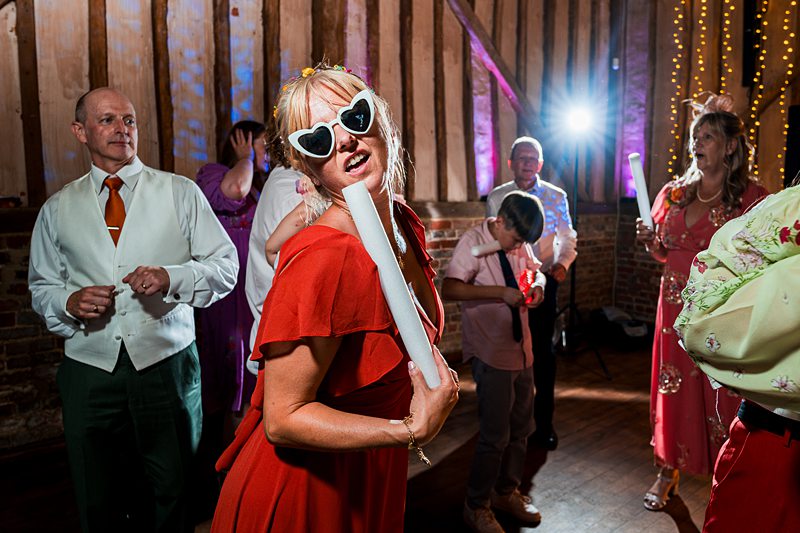
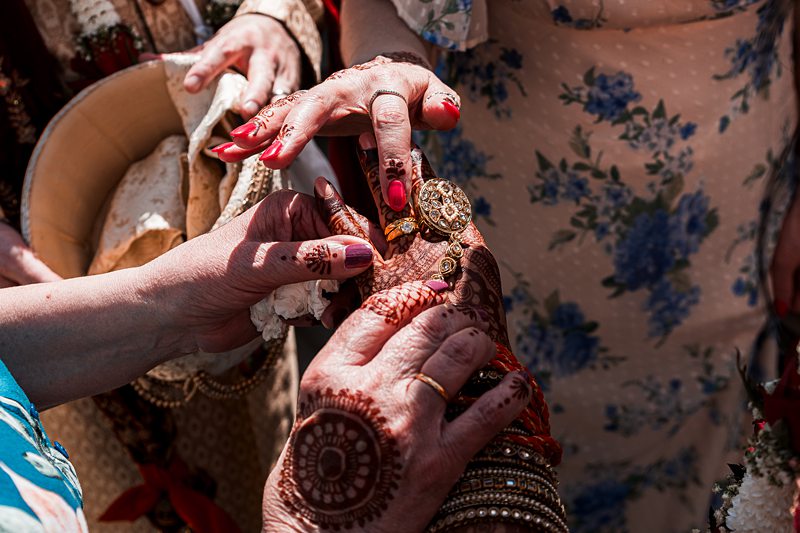
Conclusion
This guide gives you a full picture of planning a memorable UK wedding. It covers everything from the beautiful settings to the best times and ways to save money. It’s all about making your wedding day special.
Knowing the legal stuff, budgeting, and what to avoid can make your day smooth and fun. There are many types of weddings, from civil to symbolic ones. This lets you make your day truly yours.
With good planning, you can make your wedding day magical and memorable for everyone. You can pick the best time, whether it’s the quiet months or a winter or midweek wedding. This guide helps you make the right choice for your big day.
FAQ
What is the unique experience of a wedding in the UK?
A wedding in the UK is special. It lets couples make unforgettable memories in beautiful places. Whether it’s a beach in the Maldives or a vineyard in Tuscany, the location makes the day magical.
These unique venues offer stunning backdrops that local settings can’t match. Destination weddings often have a smaller guest list. This makes the celebration more intimate and personal, perfect for those who love a close-knit gathering.
What is the best time of year to get married in the UK?
The best time for a UK wedding depends on the weather, local events, and venue availability. It’s key to research the best time for your destination. Think about the local climate and any events or holidays that might affect things.
What are the key considerations for planning a UK wedding?
Planning a UK wedding involves legal requirements and a detailed budget. You’ll need to gather documents like birth certificates and passports. Also, remember to budget for travel, accommodation, attire, venue costs, and activities for guests.
Don’t forget about exchange rates and extra costs like import taxes. This helps avoid unexpected expenses.
What common mistakes should couples avoid when planning a UK wedding?
Some common mistakes include not visiting the destination before the wedding and overlooking legal requirements. It’s also easy to underestimate costs and not communicate well with guests.
Visiting the location before the wedding helps finalise details and meet suppliers. Ignoring legal requirements can cause big problems. Clear communication with guests about travel, accommodation, and itineraries is key to avoid confusion.
What types of wedding ceremonies are available in the UK?
In the UK, couples can choose from civil, religious, and symbolic ceremonies. Civil ceremonies are legal and conducted by a government official. Religious ceremonies require checking the local religious institution’s requirements and can be customised.
Symbolic ceremonies have no legal standing but are celebratory. They offer more flexibility and creativity in design.

